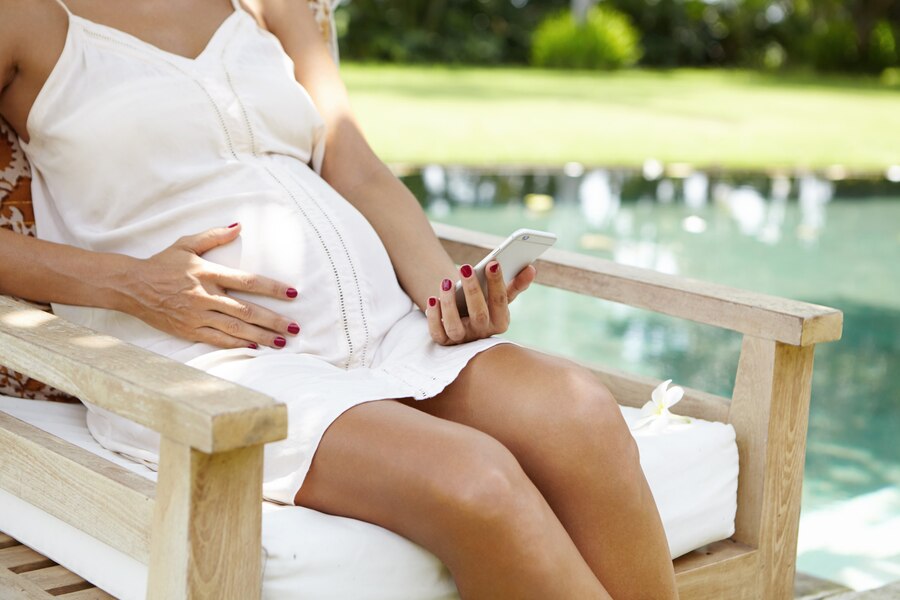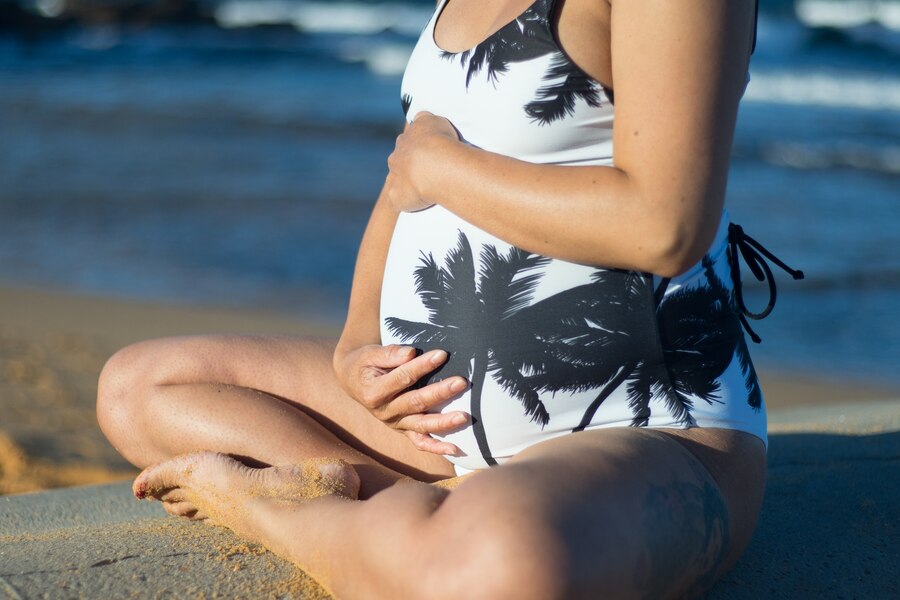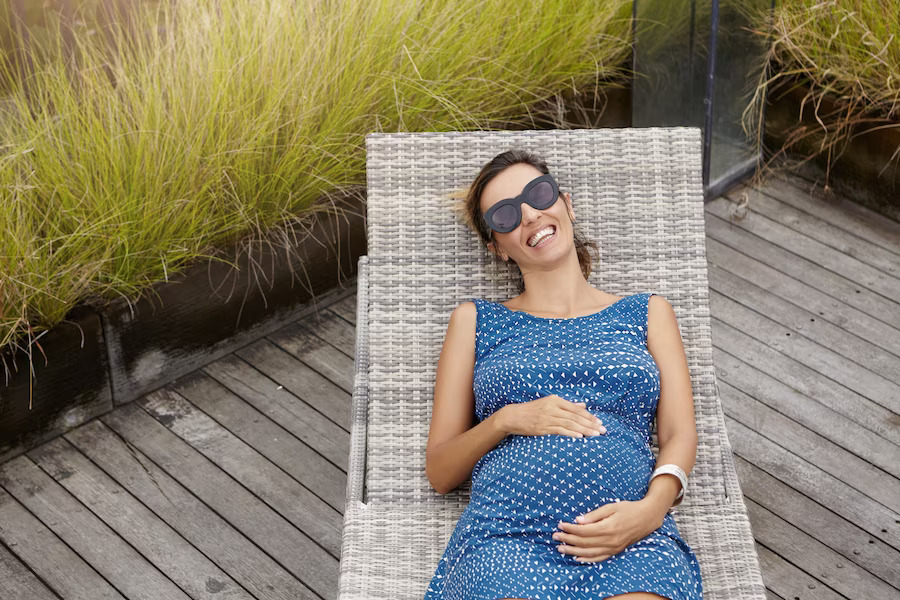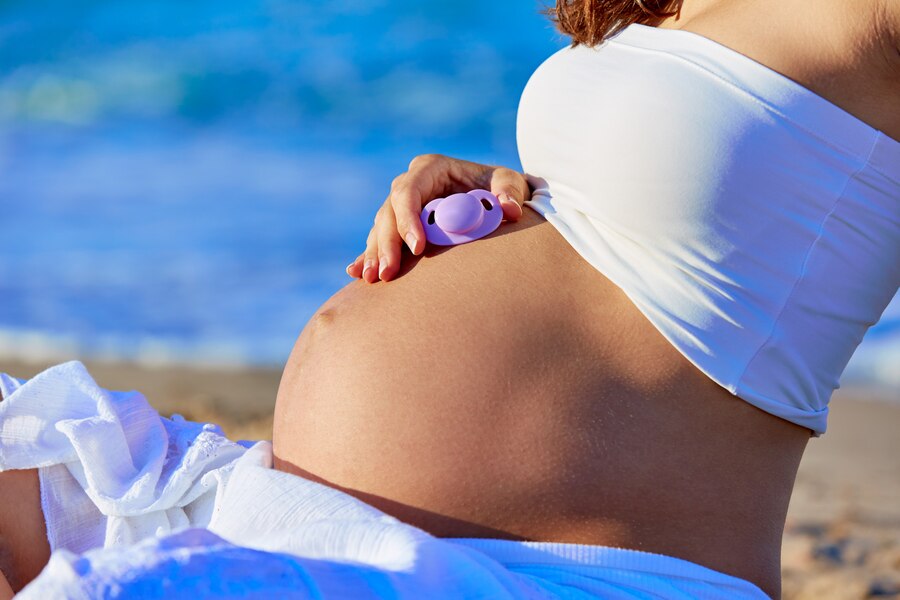Note: Tanning, whether through sun exposure or tanning beds, involves exposing your skin to ultraviolet (UV) rays. This article aims to provide a balanced view of the topic and is not intended to replace medical advice. Always consult with your healthcare provider before making any decisions during pregnancy.
Congratulations on your pregnancy! As an expectant mother, having questions about various aspects of your daily life, including tanning, is natural. While many women enjoy a sun-kissed glow, it’s essential to consider the potential risks and benefits before engaging in tanning activities during pregnancy. In this article, we’ll explore the pros and cons of tanning while pregnant, along with alternatives and expert opinions to help you make an informed decision.
Understanding Tanning
Before we delve into the topic, let’s briefly understand what tanning entails. Tanning refers to darkening your skin tone, primarily through exposure to UV radiation from the sun or artificial sources such as tanning beds. UV rays penetrate the skin, triggering melanin production, the pigment responsible for skin color.
Can You Go Tanning While Pregnant?
Tanning beds emit harmful UV radiation that can increase your risk of skin cancer, premature aging, and other health problems. These risks are even higher for pregnant women, as their babies are still developing and more vulnerable to the effects of UV radiation.
If you’re looking for a way to get a tan without risking your health, I recommend using a self-tanner. Self-tanners work by depositing a harmless, temporary color on your skin so that you can get the look of a tan without any risks.
I know it can be tempting to want to tan while you’re pregnant, but it’s important to remember that your health and the health of your baby are the most important things. So please, skip the tanning bed and opt for a safer alternative.
Here are some additional information about the risks of tanning while pregnant:
- UV radiation can damage your DNA, which can lead to skin cancer.
- UV radiation can also cause premature aging, such as wrinkles and age spots.
- UV radiation can also weaken your immune system, making you more susceptible to infection.
- UV radiation can also cross the placenta and reach your baby. This can increase your baby’s risk of skin cancer and other health problems.
The safety of tanning during pregnancy is a concern for many expectant mothers. While there is no definitive answer, weighing the potential pros and cons is crucial. Let’s explore both sides to gain a comprehensive understanding.
Pros and Cons of Tanning While Pregnant
Here are some pros and cons of tanning while pregnant:
Pros of Tanning While Pregnant
- Boosting Vitamin D Levels: Sun exposure is a natural source of vitamin D, which is vital in supporting bone health and the immune system. Limited sun exposure can help maintain adequate vitamin D levels.
- Mood Enhancement: Spending time outdoors and soaking up the sun can positively impact your mood, helping alleviate stress and promote a sense of well-being.
- Improved Circulation: Moderate sun exposure may enhance blood circulation, which can be beneficial during pregnancy.
- Skin Conditions Relief: Some pregnant women experience skin conditions like acne or melasma. Sun exposure may temporarily alleviate these conditions, providing relief.
Cons of Tanning While Pregnant
- Risk of Overheating: Pregnant women are more prone to overheating due to hormonal changes. Excessive heat from sun exposure or tanning beds can raise body temperature to unsafe levels.
- Increased Skin Sensitivity: Pregnancy hormones can make your skin more sensitive to the sun, leading to sunburn or skin damage even with minimal exposure.
- Higher Risk of Hyperpigmentation: Melasma, a common skin condition during pregnancy, can worsen with UV exposure, leading to darker patches on the skin.
- Risk of Dehydration: Sun exposure can increase the risk of dehydration, which is already a concern during pregnancy. It’s essential to stay hydrated and avoid excessive sun exposure.
Alternatives to Traditional Tanning
If you decide to avoid tanning while pregnant, there are alternative ways to achieve a beautiful glow without exposing yourself to UV radiation:
- Self-Tanning Products: Self-tanners offer a safe and effective way to achieve a sun-kissed look. They work by coloring the outermost layer of the skin and do not involve UV exposure.
- Bronzing Makeup: Using bronzing powders or creams can provide a temporary bronzed effect without UV exposure.
- Body Glow Lotions: Body lotions with a hint of shimmer or a subtle tint can give your skin a radiant glow.
Precautions for Safe Tanning
If you decide to go ahead with tanning while pregnant, it’s crucial to take the necessary precautions to ensure your safety and the well-being of your baby:
- Consult with Your Healthcare Provider: Consult with your healthcare provider before engaging in any tanning activities. They can provide personalized advice based on your specific situation.
- Time Your Exposure: Limit your time in the sun or tanning bed to avoid overheating and excessive UV exposure. Aim for short periods and ensure adequate breaks in shaded or indoor areas.
- Stay Hydrated: Drink plenty of water to stay hydrated and avoid the risk of dehydration.
- Wear Protective Clothing: Cover your skin with lightweight, loose-fitting clothing, and wear a wide-brimmed hat to shield your face and neck from direct sunlight.
The Importance of Sunscreen
When tanning or spending time outdoors, sunscreen is a crucial element of sun protection. Here are some key points to remember:
- Choose a Broad-Spectrum Sunscreen: Opt for a sunscreen that provides protection against both UVA and UVB rays.
- Use SPF 30 or Higher: Select a sunscreen with a sun protection factor (SPF) of 30 or higher to ensure adequate protection.
- Apply Sunscreen Properly: Apply sunscreen generously to all exposed skin areas at least 15 minutes before sun exposure. Reapply every two hours or more frequently if sweating or swimming.
Risks and Side Effects
Tanning while pregnant carries certain risks and potential side effects that you should be aware of:
- Increased Risk of Skin Cancer: Prolonged and frequent exposure to UV radiation can increase the risk of skin cancer, including melanoma, the deadliest form of skin cancer.
- Premature Aging: UV exposure can accelerate skin aging, leading to wrinkles, fine lines, and age spots.
- Eye Damage: UV rays can harm your eyes. Ensure you wear sunglasses with proper UV protection when outdoors.
Expert Opinions on Tanning During Pregnancy
So you’re pregnant and you’re wondering if it’s safe to tan. The short answer is no. Tanning, whether it’s done in the sun or a tanning bed, is not safe for pregnant women.
There are some reasons why tanning is not safe during pregnancy. First, UV rays from the sun and tanning beds can damage skin. This damage can lead to premature aging, wrinkles, and age spots. It can also increase your risk of skin cancer.
Second, UV rays can cross the placenta and reach your baby. This can increase your baby’s risk of skin cancer, as well as other health problems such as preterm birth and low birth weight.
For these reasons, it’s important to avoid tanning altogether during pregnancy. If you’re looking for a way to get a sun-kissed glow, there are safer alternatives available. Self-tanners are a great option for pregnant women. They’re easy to use and they won’t damage your skin.
If you’re still not sure whether or not it’s safe to tan during pregnancy, talk to your doctor. They can help you make the best decision for you and your baby.
Here are some expert opinions on tanning during pregnancy:
- Dr. Mary Jane Minkin, a clinical professor of obstetrics and gynecology at Yale University School of Medicine: “There is no safe way to tan during pregnancy. UV rays from the sun and tanning beds can damage your skin and increase your risk of skin cancer. It’s important to avoid tanning altogether during pregnancy.”
- Dr. Alan Greene, a pediatrician and author of “Dr. Greene’s Newborn Care Handbook”: “Tanning is unsafe for pregnant women. UV rays can cross the placenta and reach your baby, increasing their risk of skin cancer and other health problems. It’s important to avoid tanning altogether during pregnancy.”
- The American Academy of Dermatology (AAD): “The AAD recommends that pregnant women avoid tanning altogether. UV rays from the sun and tanning beds can damage your skin and increase your risk of skin cancer. There is no safe way to tan during pregnancy.”
If you’re looking for a way to get a sun-kissed glow without tanning, several safe alternatives are available. Self-tanners are a great option for pregnant women. They’re easy to use and they won’t damage your skin. You can also try using bronzers or tinted moisturizers to give your skin a subtle, sun-kissed look.
If you’re still unsure whether it’s safe to tan during pregnancy, talk to your doctor. They can help you make the best decision for you and your baby.
Common Concerns and Misconceptions
There are several common concerns and misconceptions regarding tanning during pregnancy. Let’s address a few of them:
- “Will tanning harm my baby?”: While direct harm to the baby is unlikely, it’s crucial to consider the potential risks to your health and well-being.
- “Can tanning prevent vitamin D deficiency?”: While sun exposure is a natural source of vitamin D, it’s not the only way to maintain adequate levels. Dietary supplements and a balanced diet can help meet your vitamin D needs.
- “Can tanning worsen melasma?”: UV exposure can aggravate melasma, causing darker patches on the skin. Protecting your skin and seeking alternative methods to achieve a tan is advisable.
Self-Tanning Products
Self-tanning products provide a safe and convenient option to achieve a tan while pregnant. They contain ingredients that temporarily darken the outermost layer of the skin, giving you a natural-looking tan without UV exposure. Always follow the product instructions and perform a patch test before use.
Pregnancy is a beautiful journey; embracing your natural skin tone can be empowering. Remember that a healthy pregnancy glow comes from within and is not dependent on a tan. Embrace your changing body and focus on self-care and overall well-being.
Conclusion
There are pros and cons of tanning while pregnant. While moderate sun exposure can provide some benefits, it’s essential to prioritize your safety and your baby’s health. Consider alternative methods, such as self-tanning products, and consult your healthcare provider for personalized advice. Embrace your natural beauty and enjoy the journey of pregnancy with confidence.
FAQs
Q: Is it safe to use self-tanning products while pregnant?
A: Generally, self-tanning products are considered safe during pregnancy as they do not involve UV exposure. However, performing a patch test and consulting with your healthcare provider before using any new products is advisable.
Q: Can tanning beds be used during pregnancy?
A: Tanning beds emit UV radiation, harming your skin and increasing the risk of overheating. It’s generally recommended to avoid tanning beds while pregnant.
Q: How can I protect my skin from the sun during pregnancy?
A: To protect your skin from the sun, wear protective clothing, use sunscreen with a high SPF, seek shade during peak hours, and wear sunglasses with UV protection.
Q: Can tanning worsen pregnancy-related skin conditions?
A: UV exposure can exacerbate skin conditions like melasma, acne, and sensitivity. Protecting your skin and seeking alternative methods to achieve a tan is advisable.
Q: Are there any natural ways to enhance the pregnancy glow?
A: A healthy lifestyle, including a balanced diet, regular exercise, and proper skincare, can help enhance your natural pregnancy glow. Focus on self-care and overall well-being.







